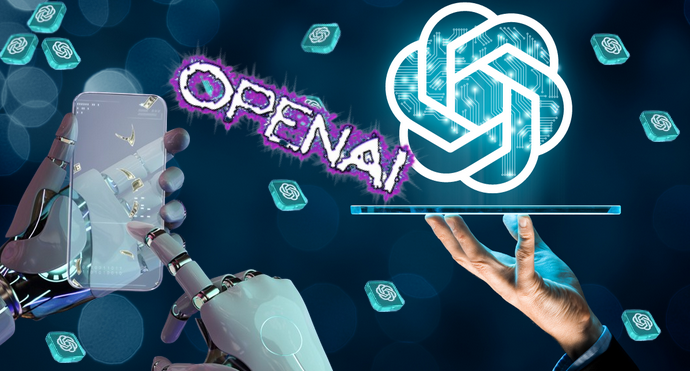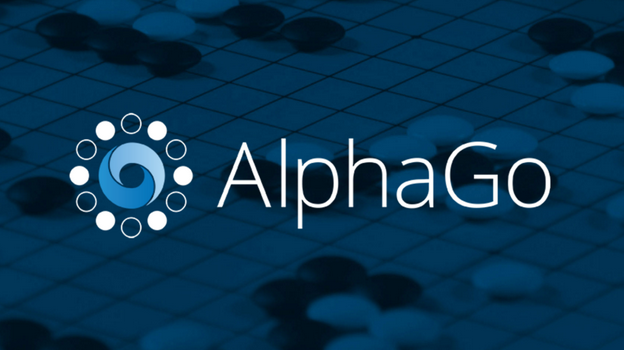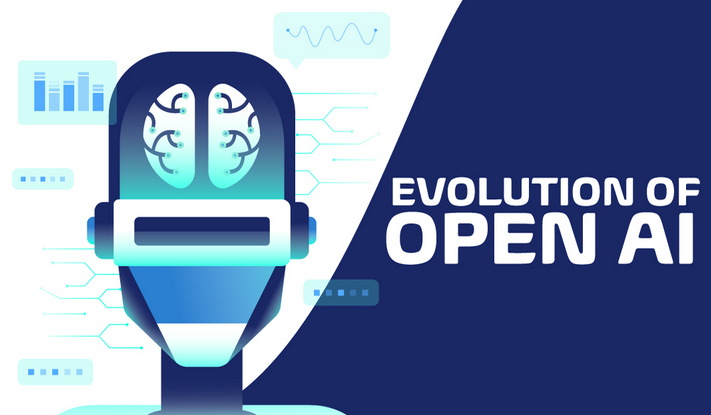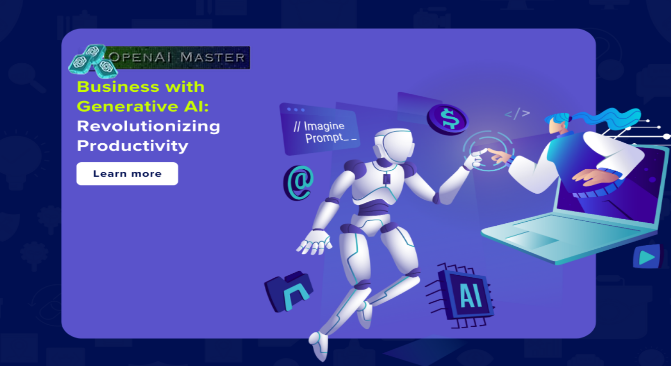OpenAI is like the superhero of artificial intelligence (AI), aiming to make sure that AI benefits everyone. They’re known for creating cool things like GPT-3, a super-smart language model that can write and understand text in a way that seems almost human. What’s even cooler is that OpenAI likes to share its discoveries with the world, making AI more accessible to everyone.
But it’s not just about tech for OpenAI – they’re the good guys of the AI world. They think a lot about fairness, security, and how AI affects society. They’re not just making amazing algorithms; they’re also making sure these algorithms are used in ways that are fair and good for everyone.

What is OpenAI?
OpenAI is like a team of diverse superheroes working together. They believe that solving the big challenges of AI requires people from all walks of life. They’re not keeping their secrets to themselves – they want everyone to be part of the solution.
In a world that’s always changing, OpenAI is like the wise guide making sure AI develops in a way that helps, not harms. They’re not just about the cool tech stuff; they’re also making sure we think about the right way to use it. OpenAI is like a friend who reminds us that technology should make the world better for all of us. They’re not just coding; they’re shaping a future where AI is a force for good.
Brief History of OpenAI
OpenAI was founded in 2015 by visionary leaders like Elon Musk and Sam Altman. It started as a nonprofit with a mission to ensure that AI benefits humanity as a whole. Since then, OpenAI has been at the forefront of AI research, creating tools and technologies that push the boundaries of what’s possible.
Getting Started
Back in 2015, some tech-savvy folks, including Elon Musk and Sam Altman, came together to form OpenAI. Their goal? To make sure that super-smart AI, known as AGI, benefits everyone on the planet.
OpenAI’s Mission
OpenAI is like a superhero on a mission. Their main goal is to create AI that helps people, and they’re serious about keeping it safe and useful for the long haul. They want to share their AI discoveries with the world, making sure everyone can enjoy the benefits.
Tech Marvels – GPT Series
One of OpenAI’s coolest creations is the GPT series. Think of it as a super-smart language tool. GPT-3, the latest version, can understand and generate text that seems almost human. It’s like magic! This technology has endless possibilities, from writing stories to helping with computer code.
Sharing Knowledge
OpenAI is all about teamwork and openness. Instead of keeping their discoveries a secret, they share them with everyone. This way, people from different backgrounds can join in, learn, and contribute to making AI better.
Being Fair and Ethical
OpenAI cares about making AI fair for everyone. They’re aware that sometimes AI can show biases, so they’re working hard to fix that. They want to make sure AI treats everyone equally, no matter who they are.
Joining Forces for Good
OpenAI is like a friend who invites everyone to a party. They believe that solving big challenges needs a diverse group of people. They’re teaming up with others worldwide to make sure AI is a force for good.
Challenges and Learning
Even superheroes face challenges. OpenAI knows that making super-smart AI is tough, and they’re careful not to let it be used in harmful ways. They’re also working on making sure AI is accessible to everyone, not just a select few.
Breakthrough Research and Innovation
OpenAI is constantly pushing the boundaries of AI research, exploring new ideas and technologies that have the potential to change the world. From language understanding to robotics, OpenAI is always looking for new ways to use AI for good.
Best OpenAI Masterpieces
GPT-4 (Generative Pre-trained Transformer 4)
Talking Text Generator (GPT-3):
OpenAI’s GPT-3 is like a super-smart language wizard. It can chat, write stories, and even understand computer code. With a whopping 175 billion skills, it’s the talk of the town for its ability to use language almost like a human.

Go-Game Genius (AlphaGo):
DeepMind’s AlphaGo is the AI champ that rocked the game of Go, an ancient board game. In 2016, it outplayed a top Go player, showing that AI can master complex strategies and beat human experts at their own games.
Quiz-Show Whiz (Watson):
IBM’s Watson is an all-around smart machine that wowed everyone by winning Jeopardy! in 2011. Watson is great with words, using natural language smarts to answer tricky questions—just like a trivia pro.
Self-Driving Sidekick (Tesla Autopilot):
Tesla’s Autopilot is like having a car buddy with excellent driving skills. Using AI and neural networks, it helps Tesla cars drive on their own in specific situations. It’s a peek into the future of cars that drive themselves.
GPT-3: The Language Wizard
At the forefront of AI-powered text generation stands GPT-3 (Generative Pre-trained Transformer 3), a marvel of natural language processing. With its vast knowledge and linguistic prowess, GPT-3 can compose essays, answer questions, and even engage in conversation with remarkable fluency and coherence.
DALL-E: The Creative Visionary
DALL-E redefines the possibilities of image generation by interpreting textual descriptions and crafting corresponding visual artworks. From fantastical creatures to surreal landscapes, DALL-E demonstrates an unparalleled ability to translate imagination into stunning visual reality.
MuseNet: The Musical Maestro
MuseNet ventures into the realm of music composition, producing harmonious melodies across diverse genres and styles. With its ability to blend influences and experiment with musical structures, MuseNet enriches the sonic landscape with its innovative compositions.
CLIP: The Visionary Observer
CLIP (Contrastive Language-Image Pre-training) bridges the semantic gap between language and vision, enabling AI to understand and interpret visual content based on textual cues. This transformative capability empowers CLIP to perform tasks such as image classification, object detection, and visual analogy reasoning.
GPT-3 Poetry: The Poetic Muse
GPT-3’s poetic prowess transcends mere words, evoking emotions and imagery through its eloquent verses. From sonnets to haikus, GPT-3 explores the boundless realms of poetic expression, captivating readers with its lyrical beauty and insightful reflections.
Codex: The Coding Companion
Codex revolutionizes the landscape of software development by serving as an AI-powered programming assistant. With its vast repository of code knowledge and contextual understanding, Codex streamlines coding workflows, offering suggestions, debugging assistance, and code generation in real time.
DALL-E 2: The Visual Alchemist
DALL-E 2 builds upon its predecessor’s legacy, pushing the boundaries of image generation with enhanced capabilities and creativity. From intricate details to imaginative concepts, DALL-E 2 crafts visual masterpieces that blur the line between reality and imagination.
GPT-4: The Next Evolution
Chat GPT-4 represents the culmination of OpenAI’s ongoing quest for AI excellence, boasting enhanced capabilities and performance. With its advanced language understanding and generation abilities, GPT-4 sets a new standard for AI-powered communication and creativity.

Jukebox: The Audio Virtuoso
Jukebox immerses listeners in a world of sonic exploration, generating music with rich complexity and emotional depth. From classical symphonies to contemporary hits, Jukebox demonstrates an unparalleled ability to compose music that resonates with audiences on a profound level.
GPT-3 Art: The Creative Expressionist
GPT-3’s artistic endeavors extend beyond words, embracing the realm of visual art with its unique style and interpretation. From abstract compositions to photorealistic renderings, GPT-3 explores the vast canvas of artistic expression, inspiring awe and admiration with its creative ingenuity.
Chess-Champion Computer (Deep Blue):
IBM’s Deep Blue made history in 1997 by beating the world chess champ. It showed that AI could think strategically in a game as complicated as chess. Deep Blue’s win was like a game-changer, proving that computers could outsmart even the best human players.
These AI marvels are like tech superheroes, each with its unique skill. From talking like a human to mastering tricky games, they’ve shown us the exciting possibilities of artificial intelligence in our everyday lives.
The Future of OpenAI and AI Technology
As we stand at the precipice of a new era defined by artificial intelligence (AI), the trajectory of OpenAI, one of the foremost pioneers in this domain, holds profound implications for society at large. Speculating on its future direction unveils a landscape rich with possibilities and challenges, where emerging trends in AI research and development intersect with societal needs and ethical considerations.

Evolution of OpenAI
Founded with a mission to advance AI in service of humanity, OpenAI has evolved from its inception as a research organization to become a driving force behind transformative AI technologies. Looking ahead, OpenAI is poised to continue pushing the boundaries of what AI can achieve, leveraging its expertise to address pressing societal challenges while fostering responsible AI development.
Impact on Society
The future of OpenAI promises to shape the fabric of society in profound ways. From revolutionizing industries through automation and innovation to democratizing access to AI technologies, OpenAI’s impact extends far beyond the confines of research labs. However, as AI becomes increasingly integrated into various aspects of daily life, concerns surrounding ethics, equity, and accountability loom large, underscoring the need for thoughtful regulation and oversight.
Emerging Trends in AI Research and Development
The landscape of AI research and development is characterized by a dynamic interplay of innovation and adaptation. Looking forward, several key trends are poised to drive the evolution of AI technology:
Advancements in Deep Learning
Deep learning, a subset of machine learning, continues to be a driving force behind AI breakthroughs, enabling systems to learn complex patterns and representations from data with unprecedented accuracy and efficiency.
Multimodal AI
The convergence of multiple modalities such as text, images, and audio is opening new frontiers in AI research, facilitating more holistic understanding and interaction with data.
Explainable AI (XAI)
As AI systems become increasingly complex and opaque, the demand for explainable AI solutions is growing, enabling users to understand the rationale behind AI-generated decisions and predictions.
AI Ethics and Bias Mitigation
Addressing ethical considerations and biases in AI algorithms is paramount to ensuring fair and equitable outcomes. Researchers are exploring techniques to mitigate biases and promote ethical AI practices.
AI for Social Good
From healthcare and education to environmental conservation, AI holds tremendous potential to address societal challenges and improve human well-being. Initiatives focused on leveraging AI for social good are gaining traction, emphasizing the importance of using AI as a force for positive change.

Opportunities and Challenges
While the future of AI is brimming with promise, it also presents a myriad of opportunities and challenges:
Opportunities
- Enhanced Efficiency and Productivity: AI technologies have the potential to streamline processes, optimize resource allocation, and drive efficiency across industries.
- Innovation and Creativity: AI-powered tools can augment human creativity and innovation, enabling novel solutions to complex problems.
- Improved Quality of Life: From personalized healthcare to smart cities, AI has the potential to enhance the quality of life and create more sustainable, inclusive communities.
Challenges
- Ethical and Regulatory Considerations: Ethical dilemmas surrounding AI, such as privacy violations, algorithmic biases, and job displacement, necessitate robust regulatory frameworks and ethical guidelines.
- Socioeconomic Disparities: The unequal distribution of AI benefits and access could exacerbate existing socioeconomic disparities, widening the gap between those who benefit from AI advancements and those who are left behind.
- Technological Risks: Concerns about AI safety, including the potential for unintended consequences and catastrophic failures, underscore the importance of rigorous testing and risk mitigation strategies.
Conclusion
OpenAI is a pioneering force in the world of artificial intelligence (AI). Since its inception, OpenAI has focused on advancing AI for the betterment of society. Through projects like GPT and DALL-E, OpenAI has showcased the incredible potential of AI technology. It has also raised important questions about ethics and responsibility in AI development. Looking ahead, OpenAI continues to lead the way in AI research and innovation. By embracing OpenAI’s work and collaborating with others in the AI community, we can help shape a future where AI benefits everyone. Let’s stay curious, ethical, and open-minded as we explore the possibilities of AI together.
Recap
We’ve seen OpenAI’s remarkable achievements, like GPT-3 and DALL-E, which showcase AI’s creativity and potential. OpenAI aims to make AI accessible and ethical, ensuring it benefits everyone.
Looking ahead, there are exciting opportunities in AI but also challenges to address, like ethics and bias. It’s a dynamic field with much promise and complexity.
Encouragement
Here’s how you can engage with AI:
Explore OpenAI’s Tech: Try out tools like GPT-3 and DALL-E to see AI in action.
Stay Updated: Keep tabs on AI developments through OpenAI’s blog and other reputable sources.
Promote Ethical AI: Advocate for fairness, transparency, and responsibility in AI development and use.
Collaborate and Innovate: Work with others to apply AI creatively and solve real-world problems.
In essence, the future of AI is exciting, and your involvement can shape it positively. Let’s embrace AI responsibly and use it to build a better future for all.
FAQs
What is OpenAI?
OpenAI is an artificial intelligence research organization dedicated to ensuring that AI benefits all of humanity.
Who founded OpenAI?
OpenAI was founded by Elon Musk, Sam Altman, Greg Brockman, Ilya Sutskever, Wojciech Zaremba, and John Schulman.
Is OpenAI a nonprofit or for-profit organization?
OpenAI is structured as a nonprofit organization.
What are the main goals of OpenAI?
OpenAI aims to advance AI technology safely and responsibly while ensuring its benefits are widely shared.
What are some of the notable projects developed by OpenAI?
Notable projects include GPT (Generative Pre-trained Transformer), DALL-E, and OpenAI Gym.
How does GPT work?
GPT uses deep learning techniques to generate human-like text based on input prompts.
What is DALL-E and how does it generate images?
DALL-E is a neural network that generates images from textual descriptions by learning patterns from large datasets.
Can I access OpenAI’s technology for personal or commercial use?
Yes, OpenAI offers access to its technology through various APIs for both personal and commercial use.
Is OpenAI’s technology open source?
Some of OpenAI’s technology is open source, while other parts are available through APIs and partnerships.
How does OpenAI ensure the ethical use of its technology?
OpenAI has ethical guidelines and conducts research to mitigate potential risks and biases in its technology.
What are some potential applications of OpenAI’s technology?
Applications include natural language processing, content generation, robotics, and more.
How does OpenAI address concerns about bias in AI algorithms?
OpenAI employs techniques such as bias testing and mitigation strategies to address bias in its algorithms.
Can I collaborate with OpenAI on research or projects?
OpenAI occasionally collaborates with researchers and organizations on specific projects or initiatives.
What is the future direction of OpenAI?
OpenAI aims to continue advancing AI technology while prioritizing safety, fairness, and transparency.
How can I stay updated on the latest news and developments from OpenAI?
You can follow OpenAI’s blog, and social media channels, and sign up for newsletters to stay informed about its latest developments.
